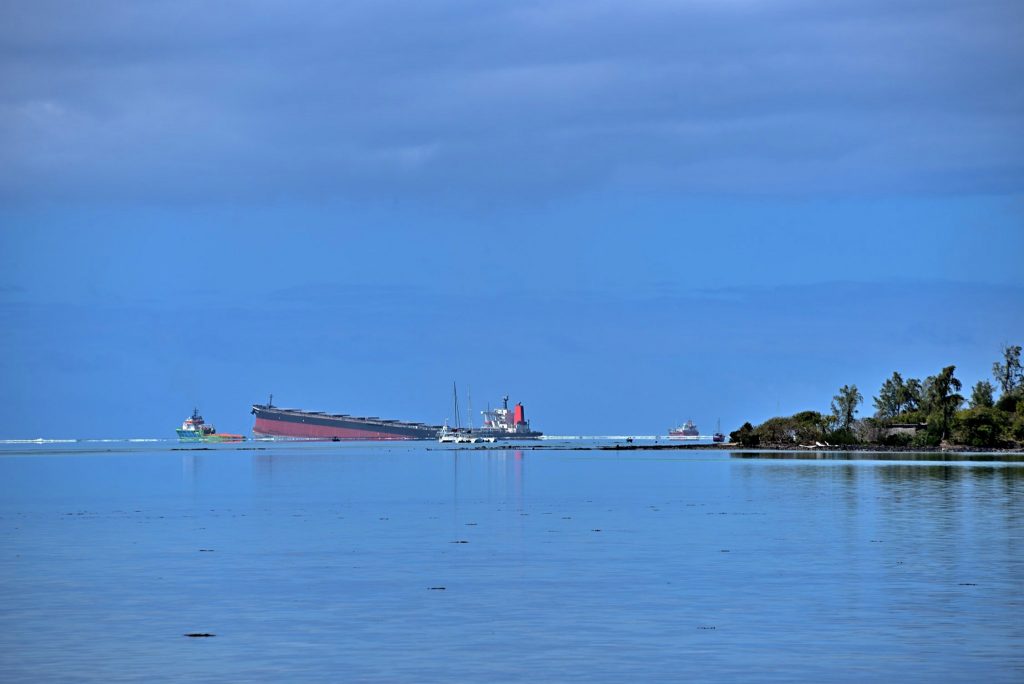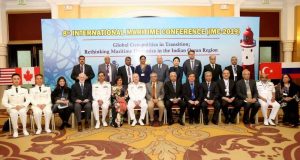The Suez Canal blockage that ended on the 29.3. is one of the major recent crises in international shipping. What is it’s relevance beyond short term economic costs? This was the key question I explore in the Al Jazeera news show Inside Story.

by admin
by admin
What does it imply to study international practices? How do international orders change? How can practice theory and pragmatist philosophy translated into models useful for empirical research? These are some of the questions that we explore in an edition of the Practice Theory podcast available here.
The discussion with the hosts Elizabeth Shove and Stanley Blue takes as starting point the recently published article “Pragmatic ordering: Informality, experimentation, and the maritime security agenda”. Co-authored with Tim Edmunds the article was recently published as online first with Review of International Studies. Contact me to receive a copy.
by admin 2 Comments
The oil spill that occurred in Mauritius this week is an environmental tragedy. Having been to the island a number of times. I was shocked to see the pictures of these stunning waters destroyed by 1.000 tonnes of oil.
Based on a detailed reconstruction of the unfolding of the disaster and our work on capacity building, I wrote a number of short comments. I also gave a range of interviews to international and regional news outlets, including with BBC Radio, Reuters and Deutsche Welle TV.

In an article in The Diplomat I argue that in particular governments in small states need to see oil spills as national priorities. They need to undertake reviews of the national response plans in the light of the disaster. Read the article The Mauritius Disaster: Overlooked Dimensions of Maritime Security, published on August, 12th.
The Mauritius Times printed an interview with me on August, 14th. Read the interview in which I discuss the importance of learning the lessons from the disaster here.
On the same day, Today in Seychelles published a commentary titled Mauritius oil spill: Seychelles must protect its natural beauty and industry. I argue that Seychelles should urgently review its own contingency plans.
In addition, we published the a more detailed analysis of the response, whether and how the government was prepared and what questions need to be addressed on the same day as SafeSeas Commentary.
The comments were widely picked up in international news, Mauritius Times published further follow ups as did other media in Mauritius.
ISS Today publish a comment coauthored with Timothy Walker on Monday. The piece republished across African newspapers, focuses on the particular consequences for Africa.
The Conversation published a further comment that shows the weakness of the responses of the government and the industry. I argue for a public and transparent investigation of the issue.
A further contribution that addresses the regional consequences for the security architecture in the Western Indian Ocean, co-authored with Tim Edmunds was published by the Observer Research Foundation.
by admin
In the afternoon of August 4th, a major explosion in the port of Beirut killed over 100 people and left thousands wounded. Given the importance of the port for Lebanon’s economy, the consequences will be felt for years.
Together with Scott Edwards I have written a series of commentaries that aim at contextualising the disaster and analysing its consequences for global trade and port management. We particular highlight the link to abandoned ships and containers, as well as the broader challenges posed by the trade in hazardous materials.
Our first general analysis was published by The Conversation, the day after the disaster. Read the piece titled “Beirut explosion: the disaster was exceptional but events leading up to it were not – researchers.” We argue to interpret the event in the light of the broader problem of abandoned ships and container.
Our second comment focuses on Africa. Recognising that African ports are particularly vulnerable, we argue for dedicated capacity building work to address the handling of hazardous material and waste crimes. The article titled “African ports need to learn the lessons of Beirut” was published by African Business Magazine on August 6th.
A third comment published with The Diplomat on August 7th, investigates the consequences for Southeast Asia, arguing that ports in the region have struggled in the past and now need to step up there game. Read “The Beirut Disaster Is a Wake-up Call for Southeast Asia. The devastating explosion in Beirut reminds us how vulnerable Southeast Asian ports might be.”
by admin
 As part of the biennial naval exercise Aman, the Pakistani government is organizing an International Maritime Conference. This years iteration had the theme “Global Geopolitics in Transition: Rethinking Maritime Dynamics in the Indian Ocean Region”. As part of the conference I gave a keynote address on the second day of the event. I argued that Pakistan needs to peer towards the Western Indian Ocean, rather then rely on a broader regional construct and then asked what is the right security architecture for that region. Further information on the conference is available here. Download a copy of my talk here, or read it below. Continue reading →
As part of the biennial naval exercise Aman, the Pakistani government is organizing an International Maritime Conference. This years iteration had the theme “Global Geopolitics in Transition: Rethinking Maritime Dynamics in the Indian Ocean Region”. As part of the conference I gave a keynote address on the second day of the event. I argued that Pakistan needs to peer towards the Western Indian Ocean, rather then rely on a broader regional construct and then asked what is the right security architecture for that region. Further information on the conference is available here. Download a copy of my talk here, or read it below. Continue reading →
by admin
In a new op-ed published by The Conversation written with Robert McCabe, we discuss whether the recent hijacking of the ARIS 13 off the coast of Somalia implies a return of piracy. We argue that the incident should be understood as a warning signal and should remind us about the importance of taking the grievances of coastal communities seriously. It is available here.
by admin 2 Comments
Tomorrow, July 25th, marks the first African Day of Seas and Oceans. To raise awareness for African maritime security and the importance of the AIMS strategy, I have published a short comment with The Conversation. It is titled “Why fighting pirates in African waters is crucial to our security” and available here.
by admin